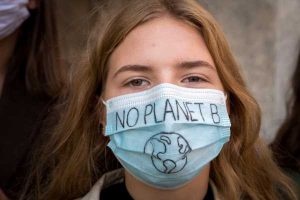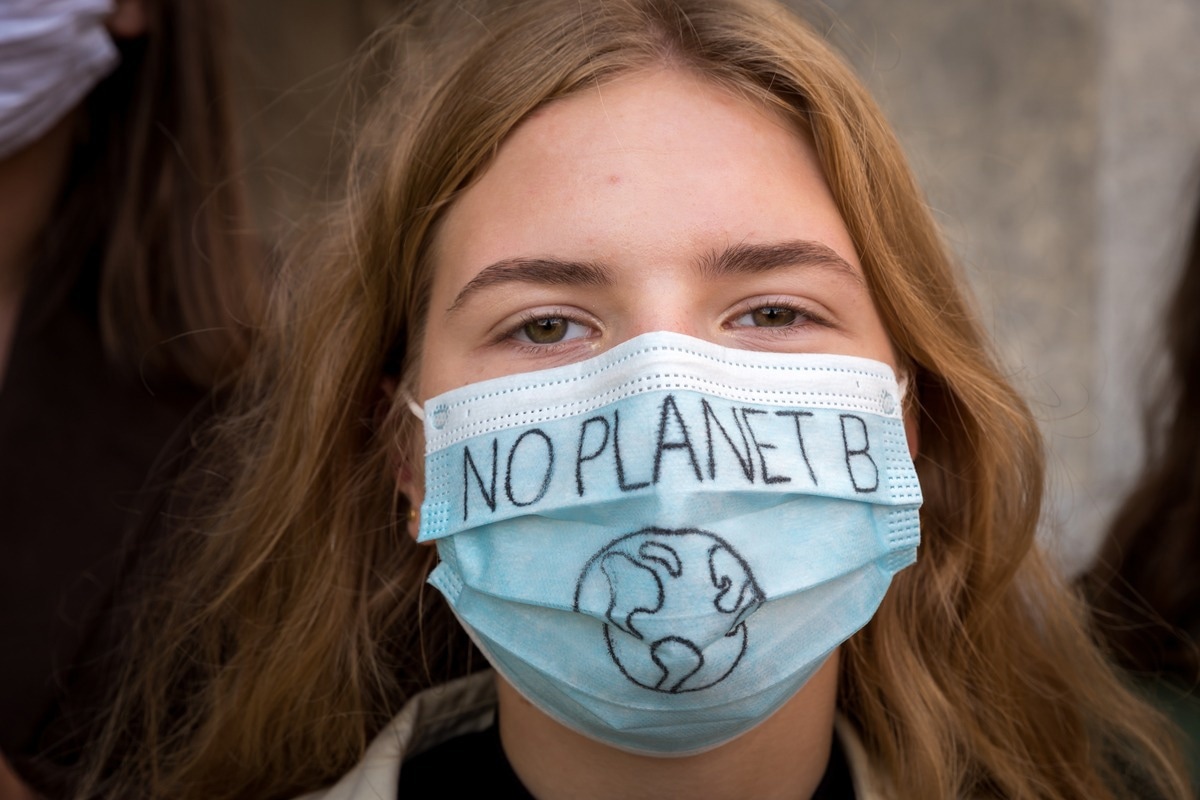The co-created challenges and opportunities of climate change and COVID-19 interactions

Coronavirus disease 2019 (COVID-19) that emerged in China in 2019 was declared by the World Health Organization as a global pandemic in early 2020. On the other hand, climate change is a shift in weather and temperature patterns mainly caused by human activities. Climate change can lead to major health issues and socio-economic inequities worldwide. These two crises together can adversely impact both the environment and society.

Background
Since COVID-19 and climate change are not specific geographically, they require sustainable and practical strategies to prepare the societies globally as well as adapt to the current crisis. Effective strategies need to be developed to reduce the consequences of both climate change and COVID-19 on a global scale.
Many recent studies focus on the association of the COVID-19 pandemic with climate change. However, most of these studies involved only the localized effects of COVID-19 and climate change. Previous studies have focused on the impact of climate change and COVID-19 on energy, economy, environment, and agriculture, as well as on particular geographic regions. An overview of these studies is required to get a broader picture of the impact of climate change and COVID-19 on specific sectors and geographic regions.
A new review published in Science of the Total Environment aimed to highlight the opportunities as well as challenges of the interaction of COVID-19 and climate change.
Interactions of climate change and COVID-19
The association between COVID-19 and climate change is complex and hard to predict. Previous studies involved only local issues or focused on a specific factor. The current review includes over 110 recent studies to determine the interactions between COVID-19 and climate change in several sectors as well as regions.
Eight different themes on the joint COVID-19 and climate change interactions have been reported, including food systems, policy, environment, society, economy, global cooperation, energy, technology, and health systems.
Impact on the economy
Climate change and COVID-19 have led to an economic crisis worldwide. Economic recovery plans associated with global decarbonization targets for the pandemic must be designed by governments globally. Carbon pricing, if implemented as carbon trading schemes or carbon tax, can be useful for integrating climate change alleviation schemes into COVID-19 recovery plans. COVID-19 recovery plans also need investments in education, infrastructure, or research and development.
Another important focus is the tourism sector which impacts the global economy. The impact of COVID-19 and climate on tourism highlights the need for shifting the tourism industry from high-resource consumption to an environmentally friendly model. Also, local communities that depend on rural tourism must be prepared for the challenges due to climate change. This would, in turn, help develop risk management plans to enhance tourism industry resilience against emerging threats.
Impact on energy and technology
Climate change and COVID-19 have highlighted the requirement for efficient and reliable power access by individuals and organizations. The pressure of the pandemic on the distribution systems has also impacted conventional energy sources. This led to the shifting focus toward green energy and renewable energy sources. Governments should develop long-term policies and short-term plans to improve the price competitiveness of renewable energy sources against traditional sources. Moreover, using renewable energy and technological advancements can improve the bio-economy, lower carbon emissions, transform waste into usable energy, and ensure a sustainable future.
Impact on the environment
The work and travel restrictions due to the pandemic led to many environmental improvements such as a decrease in emission of greenhouse gases, an increase in visibility, and a decrease in particulate matter as well as air pollution. However, lockdowns during the early phase of the pandemic led to increased ozone (O3) concentrations in many places. Huge O3 concentrations can lead to increased cardiovascular and respiratory diseases. Moreover, several studies reported that weather conditions impacted the spread of COVID-19. They also reported that COVID-19-related anthropogenic emissions could affect vegetation communities. Therefore, sustainable environmental strategies must be implemented to reduce global emissions during the post-pandemic era.
Impact on food system
COVID-19 and climate change have impacted food security and agriculture globally. Extreme weather conditions due to climate change and disruption of the supply chain due to the pandemic had adversely impacted farmers. The establishment of local food systems, prioritization of climate-smart agriculture, and innovative solutions are recommended by governments to address the situation.
Impact on health system
COVID-19 and climate change can adversely affect people's mental and physical health. It can also lead to depression, anxiety, obesity, stress, and skin disease in the elderly, children, women, and people with existing conditions. Green medical approaches must be implemented to address these concerns. Furthermore, improvement of green infrastructure, facilitation of different working modes, promotion of active transport models, and the development of policies for conserving biodiversity and ecosystems are recommended.
Impact on policy and management
Policies that are easy to adjust, durable, based on evidence, contain various global efforts, and expert advice must be adopted to develop sustainable environmental strategies. They should also include communication strategies that influence behavioral changes, overcome inequalities, address physiological bias, and avoid delays. Land-use planning and control should also be considered to improve resilience and reduce risks.
Impact on community and society
Community leadership is important in combating the COVID-19 and climate change crises. However, a difference in the level of community support has been observed for them, with COVID-19 being considered the more direct threat. Climate change has also been reported to increase COVID-19 concerns among several communities. Community-based strategies can therefore help address important issues if they are integrated into national as well as international policy decisions. Also, since COVID-19 and climate change are overlapping crises, preventive measures for COVID-19 must help mitigate climate change.
Global action
Actions against COVID-19 and climate change crises at national or local government levels might not be adequate to control and overcome them globally. In this regard, knowledge regarding the geographic distribution of COVID-19-related deaths and climate change might be important. The difference in the distribution of deaths geographically indicates that climate change ad COVID-19 impact different parts of the world. Enforcement of international multidisciplinary collaborations, improvement of public awareness, effective health plan promotion, and effective management strategies are important steps to control these two crises.
Conclusion
The co-occurrence of the COVID-19 pandemic and climate change adversely impacted the economy, health, food system, energy, environment, and communities globally. Global decision-making and collective action are required through breakthroughs in leadership in science. However, these two crises are not similar in all aspects. Further studies are required to develop long-term management strategies against climate change and COVID-19.
- Khojasteh, D. et al. (2022). Climate change and COVID-19: Interdisciplinary perspectives from two global crises. Science of the Total Environment. doi: https://doi.org/10.1016/j.scitotenv.2022.157142. https://www.sciencedirect.com/science/article/pii/S0048969722042395.
Posted in: Medical Science News | Medical Research News | Disease/Infection News
Tags: Agriculture, Air Pollution, Anxiety, Children, Climate Change, Coronavirus, Coronavirus Disease COVID-19, covid-19, Depression, Education, Food, Health Systems, Obesity, Ozone, Pandemic, Pollution, Research, Respiratory, Skin, Stress

Written by
Suchandrima Bhowmik
Suchandrima has a Bachelor of Science (B.Sc.) degree in Microbiology and a Master of Science (M.Sc.) degree in Microbiology from the University of Calcutta, India. The study of health and diseases was always very important to her. In addition to Microbiology, she also gained extensive knowledge in Biochemistry, Immunology, Medical Microbiology, Metabolism, and Biotechnology as part of her master's degree.
Source: Read Full Article